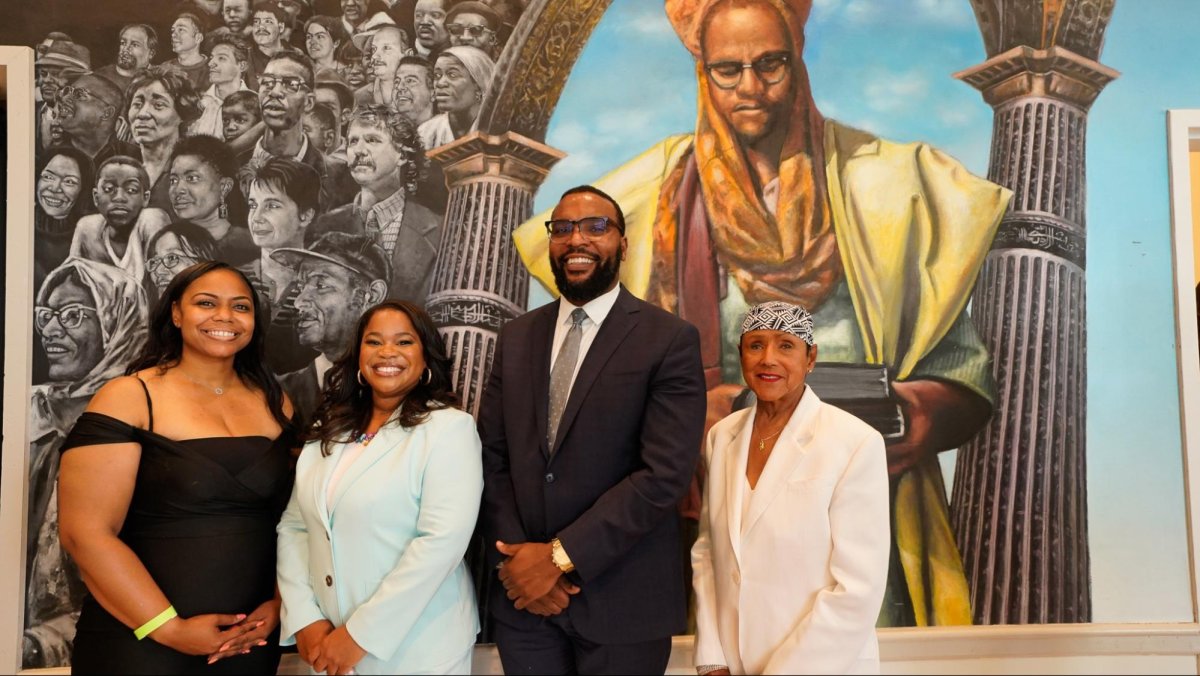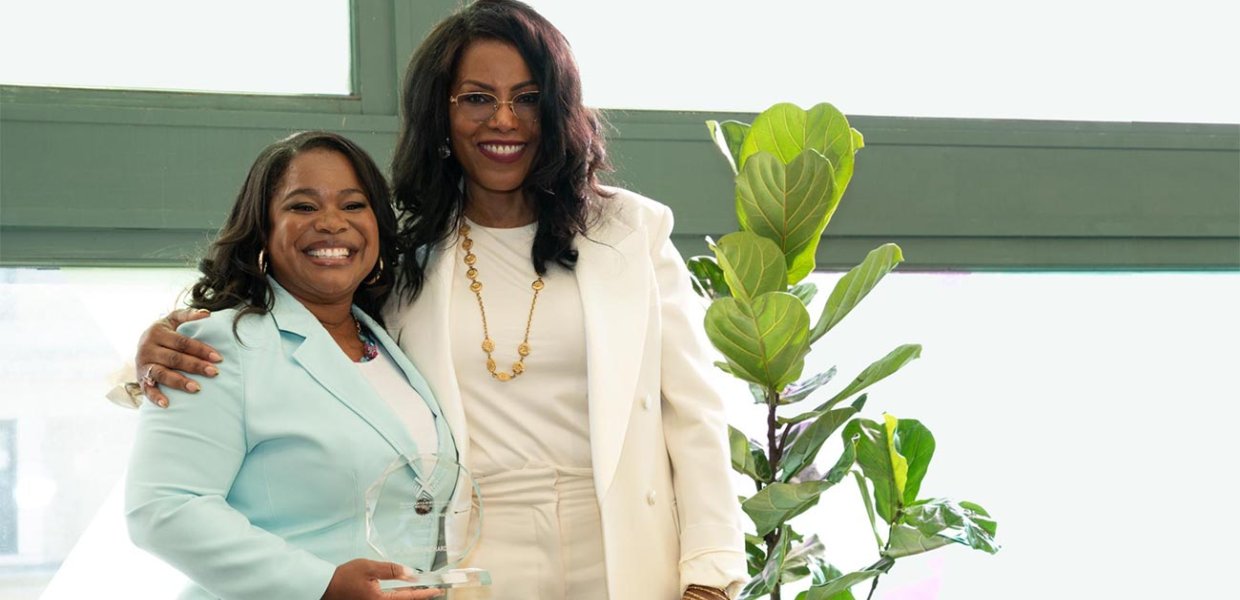Allissa V. Richardson knows long-lasting, systemic change doesn’t happen overnight — throughout her career, she has engaged in decades of research and innovation as a champion for social justice.
From launching the first smartphone-only college newsroom and writing her book Bearing Witness While Black to founding and leading the Charlotta Bass Journalism and Justice Lab at USC, Richardson has become a pioneering scholar of Black citizen journalism and mobile media activism, exploring how what we see in news media impacts public perception.
“When the news depicts a group of people in a certain way, over time that becomes subconsciously what we believe; it becomes the framing for the way that we approach each other on the street and in life,” Richardson said. “My life’s work is to help people understand that the news media are so powerful and important in terms of how they shape whether we believe people deserve empathy.”
This summer, the Malcolm X & Dr. Betty Shabazz Memorial and Educational Center honored Richardson for her trailblazing work with their Change Maker Award. She joined co-honoree Lora Dene King, CEO and founder of the Rodney King Foundation, and Vanguard Award honorees Sunny Hostin, cohost of ABC’s The View, Lee Merrit Esq., who was George Floyd’s attorney, and Elaine Brown, former chair of the Black Panther Party.
“My goal is to recognize and atone for what journalism has done and in some cases continues to do, while also trying to create, at one of the top journalism schools in the world, a curriculum, a system, of making sure that you’re treating your story subject with the humanity that they deserve,” Richardson said. “I am humbled that Dr. Shabazz chose me for this award alongside some of the brightest social justice movement leaders…. As a journalism educator, this really cemented for me how important it is to teach the next generation of journalists to report on Black life with humanity, fairness and empathy.”
Along with Lora Dene King and Ilyasah Shabazz, daughter of Malcolm X, Emerald Garner, daughter of Eric Garner, was also in attendance at the awards ceremony. In a powerful moment, all three daughters joined Richardson up on stage to honor her work. Last year, King and Shabazz met at the USC Bass Lab’s Charlotta Bass Day celebration.
“Being able to put those women in conversation with each other publicly and often really matters to me as a journalist, but also as a scholar because I think it helps reframe how we understand Black people and Blackness in America,” Richardson said.

Most recently, Richardson developed her JOUR 499: The Second Draft Project course to teach students to examine the power of news media to shape narratives and, in turn, to shape history and the future. Richardson, along with USC Annenberg alumna and adjunct instructor Jameela Hammond, guide students through the process of researching and rewriting biased narratives of the past that have often defined Black icons and Black history. In the process, Richardson says, students often uncover hidden truths and important context that was missing in these “first drafts.”
Richardson remembers how shocked many of her students were when they took a closer look at archival articles on Malcolm X, and realized what was missing.
“The students were just in awe,” Richardson said. “They were like ‘Wait, there’s almost no attribution in this article. There’s nobody who said a direct quote about Malcolm X.’ They also noticed that when he was killed, the word ‘assassinated’ wasn’t used by the mainstream media. It was just ‘civil rights leader slain.’”
As they dove deeper into journalistic coverage on Malcolm X and compared it with speeches he delivered, which Richardson personally transcribed, students started to realize how large a role the media can play in constructing the public image of an individual.
“Those awakenings just gave me such joy as a teacher because I could see them putting two and two together about, ‘If we use this picture with these words, we get these ideas about this person,’” Richardson said. “We had a multicultural group of students and they were like, ‘All I ever learned was bad things about him. Now I feel bad, now I kind of wanna go back and challenge some of the other people that I may have learned about to see if maybe bias was in there, too.’”
These revelations informed questions that students drafted for the next phase of the class — an interview with award-winning author, speaker and educator Ilyasah Shabazz, daughter of Malcolm X. This interview became the basis for a new AI-powered interactive experience that allows anyone to ask Shabazz questions about her father’s life and legacy, as a resource for journalists and the general public alike.
The Bass Lab’s Second Draft Project provides a platform for those who have been connected to, or at the center of, pivotal moments in America’s social justice movements to share their stories. For Richardson, receiving the Malcolm X and Dr. Betty Shabazz Change Maker Award reminded her of the importance of what she teaches.
“As I began my career as a journalist, I was haunted by this saying: ‘Journalism is the first draft of history.’ But what happens when that draft is wrong, and wrong for our people? Often, there is never an apology,” Richardson said in her remarks at the awards ceremony. “Thank you Dr. Shabazz for being our second Second Draft subject and visiting us in L.A. The students spent a semester learning about you, and more importantly, learning about how the media shaped your dad’s narratives in ways that were enduringly harmful. We hope with The Second Draft Project, they will see him in a brand new light.”
To learn more about the Charlotta Bass Journalism and Justice Lab and The Second Draft Project, check out the lab’s website. For a behind-the-scenes look at the creation of The Second Draft Project, check out The Second Draft podcast, available on Apple Podcasts and Spotify.
